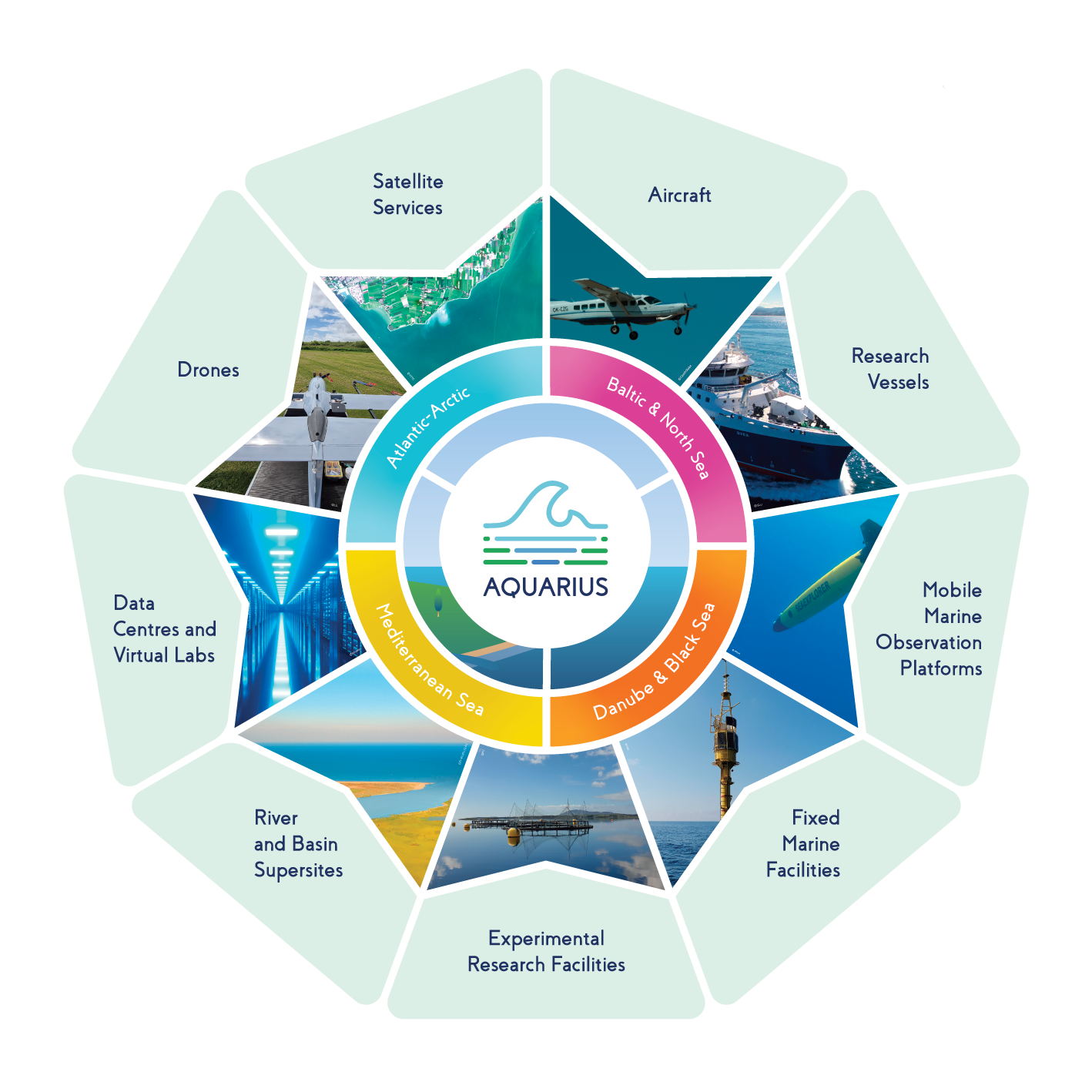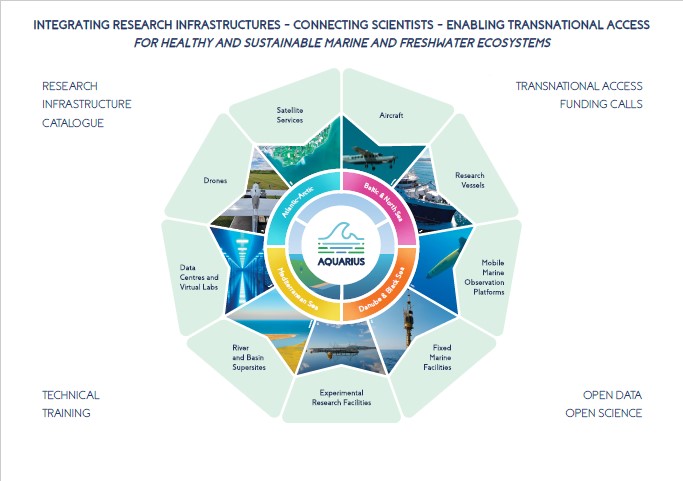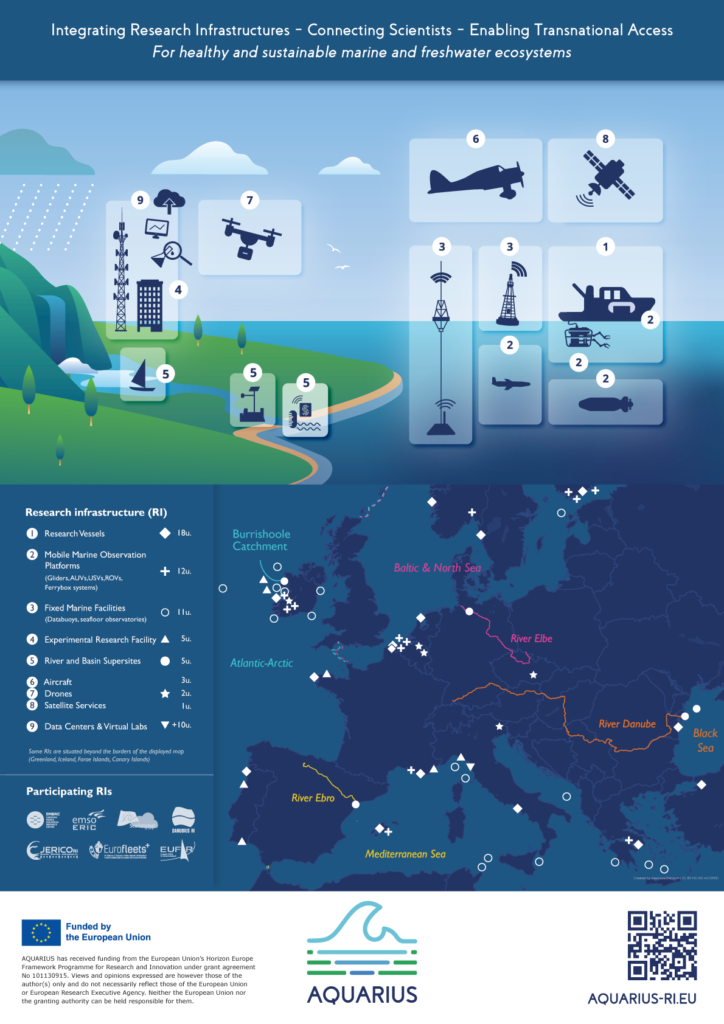ABOUT AQUARIUS

AQUARIUS provides access to a comprehensive and diverse suite of integrated research infrastructures to address challenges and explore opportunities for the long-term sustainability of our marine and freshwater ecosystems.
Through a robust and transparent system of transnational access funding calls, this four-year Horizon Europe-funded project, comprising 45 partners, will target and support research and innovation activities that contribute to the objectives, regional scope and implementation of the EU Mission ‘Restore our Ocean and Waters by 2030.’
The Mission Implementation Plan has informed the thematic (Mission objectives) and geographic (Mission Lighthouse regions) scope of AQUARIUS, meaning that projects responding to the transnational calls for access will be required to demonstrate how they will contribute to at least one of the Mission objectives in the relevant region:
- To protect and restore marine and freshwater ecosystems (Atlantic/Arctic and Danube river system lighthouse).
- Prevent and eliminate pollution of our ocean, seas and waters (Mediterranean sea basin lighthouse).
- Make the sustainable blue economy carbon-neutral and circular (Baltic and North sea basin lighthouse).
As such, AQUARIUS will cover the Baltic and the North Sea Basins, Black Sea, Atlantic/Arctic, and Mediterranean Sea along with their associated major rivers, to include the Danube, and also the Elbe, Ebro, as well as the Burrishoole Catchment.

OBJECTIVE #1
To protect and restore marine and freshwater ecosystems and biodiversity

OBJECTIVE #2
To prevent and eliminate pollution

OBJECTIVE #3
To make the sustainable blue economy carbon-neutral and circular
Research infrastructures are facilities, resources and services used by the research community to conduct research and promote innovation. They facilitate scientific research within national settings, across borders and in global collaborations. They are of utmost importance for the pursuit of scientific knowledge in a world where research and science is becoming more sophisticated but also more complex; collaboration is key.
The current global challenges we face, in terms of climate change, biodiversity loss, pollution and ocean acidification necessitate a holistic and systems approach in our research and innovation to address these challenges. The role of research infrastructures is evolving and are becoming more and more part of a connected ecosystem forming a unique resource for advanced research and interdisciplinary analysis of complex scientific problems. For the first time, the AQUARIUS catalogue integrates diverse research infrastructure services and makes these available via the online access platform, thus enabling the holistic approach required of the selected research and innovation projects.
Transnational Access ensures free of charge transnational access to the best European research infrastructures. The access includes the logistical, technological and scientific support and the specific training that is usually provided to external researchers using the infrastructure.
Remote Access (RA) is a form of Transnational Access in which the user(s) do not visit the infrastructure or installation physically themselves, instead the staff of the infrastructure or installation conducts the study/collects the samples/does the monitoring for the user(s) according to their research plan.
Virtual Access (VA) means free and open access to stations’ data and databases for everyone, without selection or evaluation processes.
Europe has a rich landscape of research infrastructures, which are essential to facilitate research and innovation that addresses urgent global challenges. However, there are diverse types of research infrastructures and these are fragmented. The research community are not aware of the availability and potential of existing research infrastructures, may have difficulty accessing them, or lack the technical capacity to use them. For the first time, AQUARIUS will bring together an online catalogue of all available research infrastructures and support research and innovation projects to access and use them via transnational calls for access.




